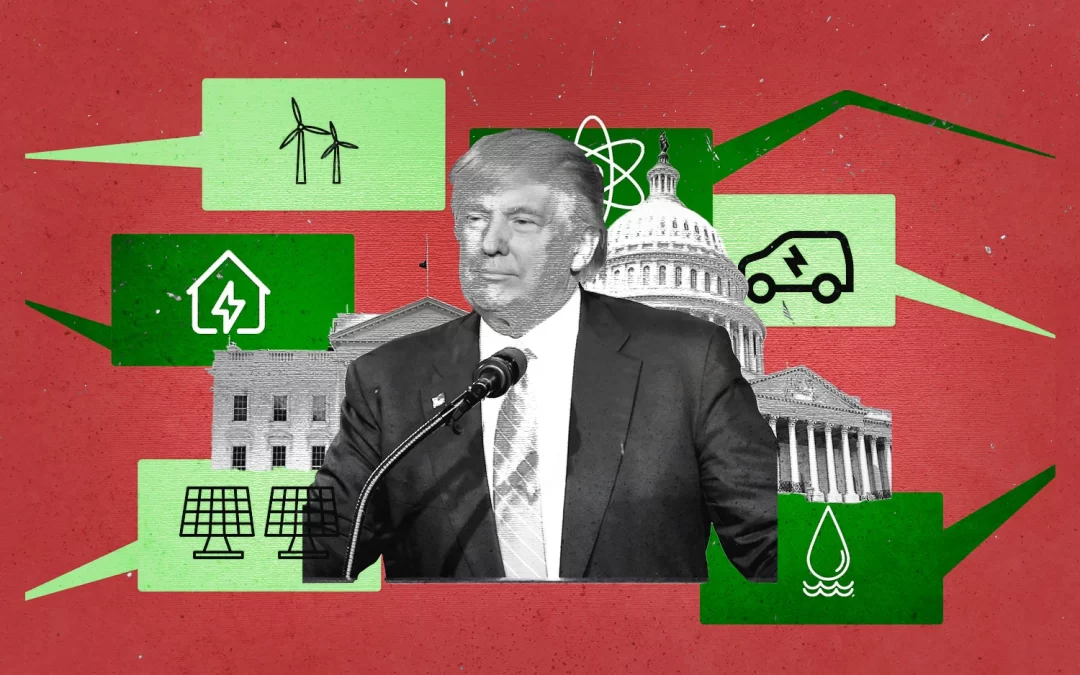If you are looking to hire in renewables and energy transition please contact meridith@prospectrockpartners.com.
President Trump will likely expand U.S. oil and gas production, impose tariffs on Chinese-manufactured cleantech and EVs and support nuclear energy infrastructure. A Trump presidency will likely lead to the following:
- Growth of climate-friendly sources of energy.
- Expansion of tax credits for carbon capture and hydrogen
- Raising tariffs on Chinese imports. Between 2018 and 2020, the Trump administration raised levies on Chinese imports by more than 500%. It has threatened an immediate 200% tariff on imports from China – Quartz
- Promises to “drill, baby, drill” on Day 1. The US is producing more oil and natural gas today than ever before, and far more than any other country It produces 50% more oil each day than Saudi Arabia- EIA
Impact on Recruiting
A second Trump presidency would likely create a complex landscape for the U.S. energy sector, particularly affecting renewable energy employment and development. Drawing from his previous administration’s policies and stated positions, we should expect immediate executive orders expected to expand US energy self-sufficiency – expediting drilling permits, fast-tracking pipeline approvals, and potentially rolling back environmental regulations under a “drill, baby, drill” approach. However, the renewable energy sector’s growth, while potentially slowed, would likely persist due to fundamental market forces, existing state policies, and the Inflation Reduction Act’s embedded tax incentives, which remain law unless congressionally modified.
The energy workforce would likely experience significant shifts under this scenario. Traditional oil and gas employers might accelerate hiring, particularly in regions like the Permian Basin and along the Gulf Coast, while renewable energy employment could see more nuanced changes. Large-scale wind and solar developers would likely continue hiring, though perhaps more selectively and with greater geographic concentration in renewable-friendly states. The emphasis on imposing tariffs on Chinese-manufactured clean technology could actually boost domestic manufacturing jobs in solar, wind, and battery production, creating new workforce demands in these sectors. Companies might increasingly seek professionals with hybrid skill sets – those who understand both conventional and renewable energy systems – particularly for growing opportunities in carbon capture, hydrogen production, and nuclear power, areas where Trump has indicated support.
The renewable energy job market would likely adapt rather than contract, with several key trends emerging. Project developers and manufacturers would likely emphasize roles focused on maximizing IRA tax credits, particularly in carbon capture and hydrogen initiatives that bridge traditional and clean energy sectors. Grid modernization and energy storage would continue driving employment growth, as these technologies serve both conventional and renewable energy needs. Corporate strategy and policy roles might expand to navigate an increasingly complex federal-state regulatory environment, while technical positions in solar installation, wind maintenance, and nuclear operations would likely remain robust due to existing project pipelines and state-level clean energy requirements. Salary competition might intensify in certain segments as companies compete for talent amid policy uncertainty, particularly for professionals who can navigate both traditional and renewable energy landscapes.
If you are looking to hire in renewables and energy transition please contact meridith@prospectrockpartners.com.





